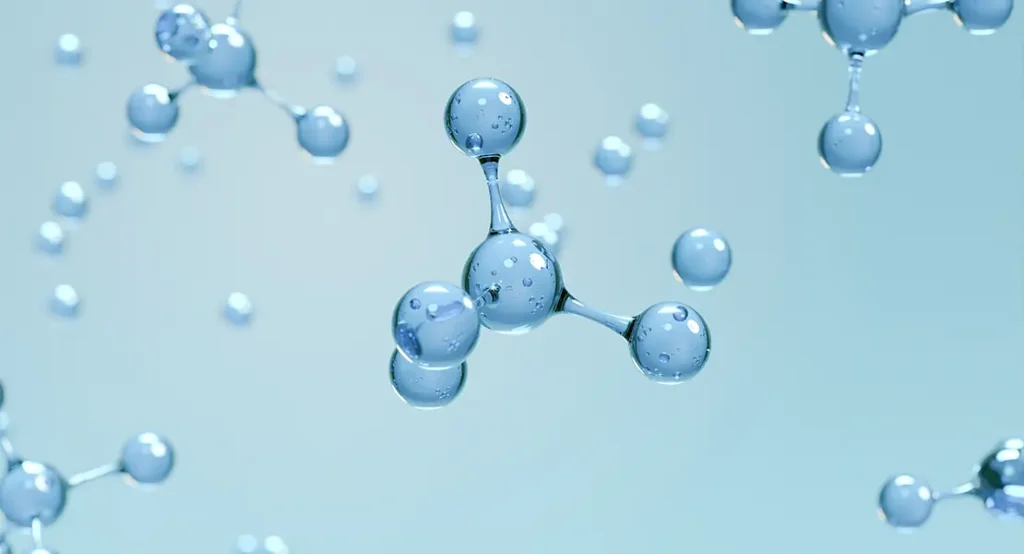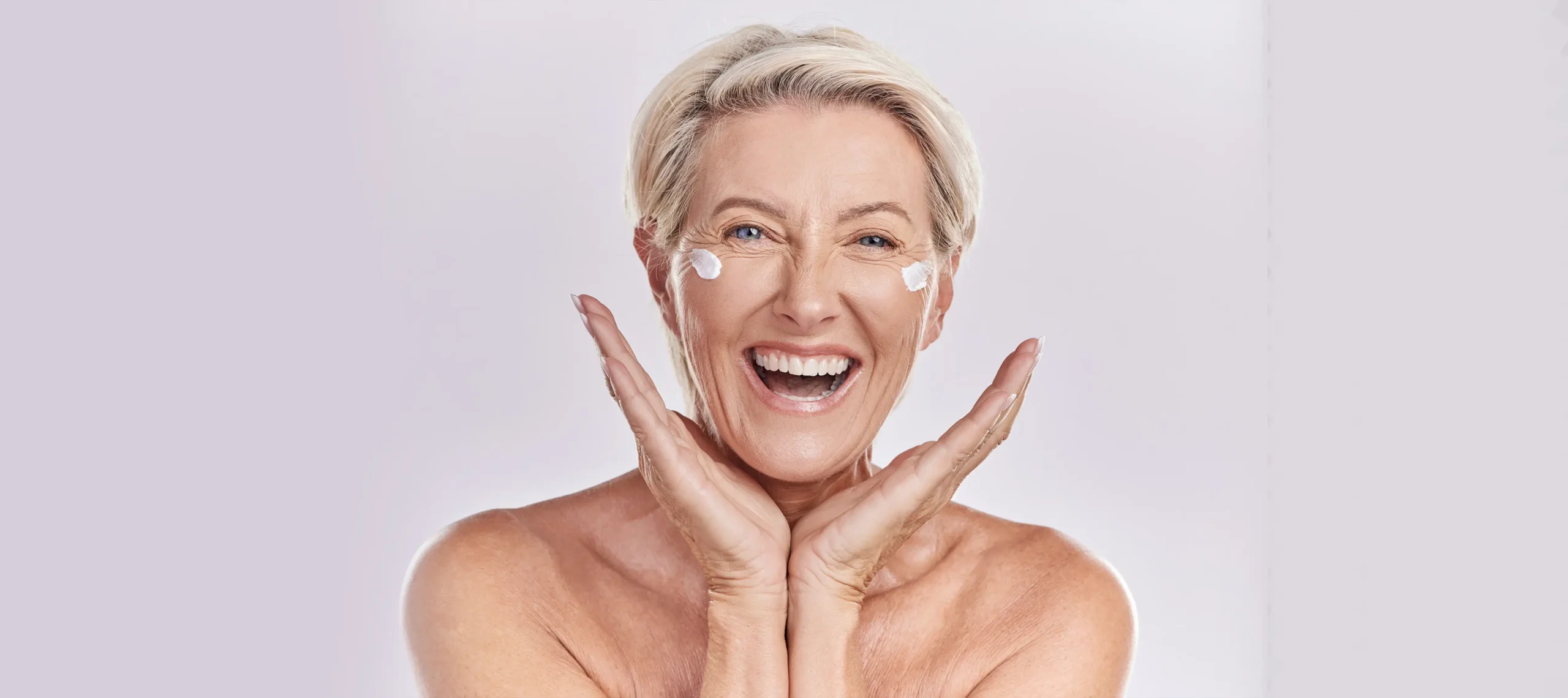Achieving and maintaining youthful, radiant skin is a common goal for many. Understanding the most effective ingredients can significantly enhance your skincare routine. Let’s delve into the top 10 anti-ageing ingredients that dermatologists recommend, exploring their benefits and how to incorporate them into your regimen.
1. Retinoids (Vitamin A Derivatives)
Retinoids, encompassing both over-the-counter retinol and prescription-strength variants like tretinoin, are celebrated for their profound impact on skin ageing. These compounds accelerate cell turnover, effectively reducing the appearance of fine lines, wrinkles, and uneven skin tone. By promoting the shedding of old skin cells and fostering the emergence of new ones, retinoids contribute to a fresher, more youthful complexion.
Beyond surface-level improvements, retinoids play a crucial role in stimulating collagen production. Collagen, a fundamental protein in the skin’s structure, provides elasticity and firmness. As we age, collagen production naturally declines, leading to sagging and wrinkle formation. Incorporating retinoids can counteract this process, enhancing skin resilience and reducing signs of ageing.
However, retinoids are potent and can cause initial irritation, such as redness or peeling. It’s advisable to start with a lower concentration, applying it sparingly to assess your skin’s tolerance. Gradually increasing usage allows your skin to adapt, minimising potential discomfort. Always apply retinoids at night, as they can increase sun sensitivity, and complement them with daily sunscreen use.
Consistency is key with retinoids. While some may notice improvements within weeks, significant results often manifest after several months of regular use. Patience and adherence to a routine will yield the best outcomes in your anti-ageing journey.
2. Vitamin C
Vitamin C stands as a powerhouse antioxidant in the realm of skincare. Its primary function involves neutralising free radicals—unstable molecules that contribute to skin ageing by damaging cells. By combating oxidative stress, Vitamin C helps preserve the skin’s integrity and youthful appearance.
One of the standout benefits of Vitamin C is its ability to brighten the complexion. Regular application can diminish the appearance of dark spots and hyperpigmentation, resulting in a more even skin tone. This makes it particularly beneficial for those dealing with sun-induced discoloration or post-inflammatory marks.
Furthermore, Vitamin C plays a pivotal role in collagen synthesis. By promoting collagen production, it aids in maintaining skin firmness and elasticity, thereby reducing the formation of fine lines and wrinkles. This dual action of protection and rejuvenation makes it a staple in anti-ageing skincare.

For optimal results, incorporate a Vitamin C serum into your morning routine. Apply it after cleansing and before moisturising to enhance absorption. Pairing Vitamin C with sunscreen amplifies its protective effects against environmental aggressors. Consistent use will gradually unveil a brighter, more youthful complexion.
3. Hyaluronic Acid
Hyaluronic Acid (HA) is renowned for its exceptional hydrating properties. Naturally occurring in the skin, HA has the remarkable ability to retain moisture, holding up to 1,000 times its weight in water. This capacity ensures that the skin remains plump, supple, and well-hydrated.
As we age, the skin’s natural HA levels diminish, leading to dryness and the formation of fine lines. Topical application of HA replenishes this loss, effectively reducing the appearance of wrinkles and imparting a dewy, youthful glow. Its lightweight nature makes it suitable for all skin types, including oily and sensitive skin.
Incorporating HA into your skincare routine can be straightforward. Look for serums or moisturisers containing HA and apply them to damp skin to maximise moisture retention. This practice enhances the skin’s barrier function, protecting against environmental stressors and preventing transepidermal water loss.
Regular use of HA-infused products not only hydrates but also improves overall skin texture. Over time, users often notice a smoother, more resilient complexion, underscoring HA’s role as a cornerstone in anti-ageing skincare.
4. Peptides
Peptides are short chains of amino acids that serve as the building blocks of proteins such as collagen and elastin—critical components for maintaining skin structure and elasticity. In skincare, peptides function as messengers, signaling the skin to boost its production of these essential proteins.
The inclusion of peptides in your skincare regimen can lead to firmer, more resilient skin. By enhancing collagen synthesis, peptides help reduce the depth and visibility of wrinkles, promoting a smoother complexion. This makes them particularly valuable for addressing signs of ageing and maintaining skin integrity.
Peptides also offer reparative benefits. They assist in strengthening the skin barrier, which is vital for retaining moisture and defending against environmental aggressors like pollution and UV radiation. A robust skin barrier translates to better hydration and reduced sensitivity.
When selecting peptide-containing products, consistency is crucial. Regular application, typically in the form of serums or moisturisers, can yield noticeable improvements over time. Combining peptides with other anti-ageing ingredients, such as antioxidants and hydrators, can further enhance their efficacy.
5. Niacinamide (Vitamin B3)
Niacinamide, also known as Vitamin B3, is a versatile and water-soluble vitamin that offers a multitude of benefits for skin health. One of its primary advantages is its ability to enhance the skin’s lipid barrier. By stimulating the production of ceramides and fatty acids, niacinamide fortifies this barrier, leading to improved moisture retention and protection against environmental aggressors. This reinforcement is particularly beneficial for individuals with sensitive or dry skin, as it helps prevent moisture loss and maintains optimal hydration levels.
Beyond its barrier-strengthening properties, niacinamide is celebrated for its anti-inflammatory effects. It effectively reduces redness and blotchiness associated with various skin conditions, including acne, rosacea, and eczema. By calming inflammation, niacinamide promotes a more even complexion and soothes irritated skin. This makes it a valuable addition to skincare routines aimed at managing inflammatory skin issues.
Niacinamide also plays a significant role in regulating sebum production. For individuals with oily or acne-prone skin, it helps balance oil levels, thereby reducing the likelihood of clogged pores and breakouts. Additionally, its ability to minimize the appearance of enlarged pores contributes to a smoother and more refined skin texture. Regular use of niacinamide can lead to a noticeable reduction in pore size and an overall improvement in skin clarity.

Incorporating niacinamide into your skincare regimen can be achieved through various products, such as serums, moisturizers, and cleansers. It is generally well-tolerated and can be used alongside other active ingredients like hyaluronic acid, retinol, and vitamin C. For optimal results, apply a niacinamide-containing product after cleansing and before moisturizing, both in the morning and evening. Consistent use over several weeks can yield significant improvements in skin tone, texture, and overall appearance.
6. Alpha-Hydroxy Acids (AHAs)
Alpha-Hydroxy Acids, commonly known as AHAs, are a group of natural acids found in various fruits and milk. They are renowned for their exfoliating properties, which help in removing dead skin cells from the surface layer. This exfoliation promotes a smoother skin texture and enhances the skin’s overall radiance. Regular use of AHAs can lead to a more even complexion and a reduction in the appearance of fine lines.
One of the primary benefits of AHAs is their ability to stimulate collagen production. Collagen is essential for maintaining skin elasticity and firmness. By boosting collagen levels, AHAs contribute to reducing signs of ageing such as wrinkles and sagging skin. Additionally, they can improve skin hydration by increasing the natural moisture content, leading to a plumper and more youthful appearance.
Incorporating AHAs into your skincare routine should be done gradually. Start with products containing lower concentrations to assess your skin’s tolerance. It’s advisable to use AHA-based products in the evening to minimise sun sensitivity. Always follow up with a broad-spectrum sunscreen during the day, as AHAs can make the skin more susceptible to UV damage.
Common sources of AHAs include glycolic acid derived from sugar cane and lactic acid from milk. These ingredients are often found in cleansers, toners, and serums. Consistent use can lead to noticeable improvements in skin texture and tone. However, it’s essential to monitor your skin’s response and consult with a dermatologist if you experience any irritation or adverse reactions.
7. Ceramides
Ceramides are lipid molecules naturally present in the skin’s outer layer. They play a crucial role in maintaining the skin’s barrier function, which protects against environmental aggressors and prevents moisture loss. As we age, the natural ceramide levels in our skin diminish, leading to dryness, sensitivity, and the formation of fine lines. Replenishing ceramides through topical applications can help restore the skin’s integrity and youthful appearance.
The primary function of ceramides in skincare is to reinforce the skin’s natural barrier. A strong barrier retains moisture effectively, keeping the skin hydrated and plump. This hydration reduces the visibility of fine lines and imparts a smoother texture. Moreover, a well-maintained barrier protects the skin from pollutants, allergens, and other external irritants that can accelerate ageing.

Incorporating ceramide-rich products into your skincare routine is particularly beneficial for those with mature or dry skin. Look for moisturisers and serums that list ceramides among their key ingredients. Regular use can lead to improved skin elasticity and a reduction in signs of ageing. Additionally, ceramides are generally well-tolerated, making them suitable for sensitive skin types.
For optimal results, apply ceramide-containing products after cleansing to lock in moisture. Combining them with other hydrating ingredients like hyaluronic acid can enhance their efficacy. Consistent application, both morning and evening, will help maintain the skin’s barrier function and overall health. Always remember to follow up with sunscreen during the day to protect the skin from UV damage.
8. Growth Factors
Growth factors are naturally occurring proteins that play a pivotal role in skin regeneration and repair. They are essential for maintaining the skin’s structural integrity by promoting the formation of collagen and elastin. As we age, the production of these proteins decreases, leading to signs of ageing such as wrinkles, fine lines, and loss of firmness. Topical application of growth factors can help counteract these effects by stimulating the skin’s natural rejuvenation processes.
The benefits of incorporating growth factors into your skincare regimen include enhanced skin elasticity and a reduction in the appearance of fine lines and wrinkles. By promoting cell turnover and repair, growth factors contribute to a more youthful and radiant complexion. They can also aid in improving skin texture and tone, making them a valuable addition to anti-ageing routines.
When selecting products containing growth factors, it’s important to choose formulations backed by scientific research. These products are often available in the form of serums or creams and should be applied after cleansing and before moisturising. Consistent use over several months is typically required to observe noticeable improvements. As with any skincare product, it’s advisable to perform a patch test before full application to ensure compatibility with your skin.
While growth factors offer promising anti-ageing benefits, they are most effective when used in conjunction with other proven ingredients such as retinoids, antioxidants, and peptides. A comprehensive skincare approach, combined with healthy lifestyle choices, will yield the best results in maintaining youthful and healthy skin.
9. Coenzyme Q10 (Ubiquinone)
Coenzyme Q10 (CoQ10) is a naturally occurring antioxidant found in every cell of the body, playing a crucial role in energy production and protecting cells from oxidative damage. In the skin, CoQ10 supports the synthesis of collagen and elastin, proteins essential for maintaining firmness and elasticity. As we age, the levels of CoQ10 in our skin diminish, reducing its ability to combat oxidative stress effectively. This decline can lead to signs of ageing such as fine lines, wrinkles, and a loss of elasticity.
Topical application of CoQ10 has been shown to replenish these levels, enhancing the skin’s defence mechanisms and promoting a more youthful appearance. By neutralising free radicals, CoQ10 helps to prevent and repair damage caused by environmental stressors, such as ultraviolet (UV) radiation and pollution. Additionally, it aids in reducing the depth of wrinkles and improving skin smoothness, contributing to overall skin rejuvenation. Regular use of CoQ10-infused skincare products can lead to noticeable improvements in skin texture and tone.
Incorporating CoQ10 into your skincare routine can be achieved through various products, including serums, moisturisers, and eye creams. For optimal results, apply CoQ10-containing products after cleansing and before heavier moisturisers or sunscreens. This ensures better absorption and efficacy. Consistent use over several weeks is typically required to observe significant benefits. As with any skincare ingredient, it’s advisable to perform a patch test before full application to ensure compatibility with your skin.
While CoQ10 offers promising anti-ageing benefits, it is most effective when used in conjunction with other proven ingredients such as retinoids, antioxidants, and peptides. A comprehensive skincare approach, combined with healthy lifestyle choices, will yield the best results in maintaining youthful and healthy skin. Consulting with a dermatologist can provide personalised advice tailored to your unique skin needs.
10. Sunscreen (Broad-Spectrum SPF)
Daily application of broad-spectrum sunscreen is paramount in any anti-ageing regimen. Protecting your skin from UVA and UVB rays prevents photoageing, including wrinkles, fine lines, and hyperpigmentation. Choose a sunscreen with at least SPF 30 and apply it every morning, regardless of the weather. Consistent use of sunscreen not only prevents further damage but also allows other anti-ageing treatments to work more effectively.

Incorporating sunscreen into your daily routine is straightforward. Apply it as the final step in your morning skincare regimen, after moisturisers and before makeup. Ensure that all exposed skin areas, including the face, neck, and hands, are adequately covered. Reapplication is necessary every two hours when exposed to direct sunlight, and immediately after swimming or excessive sweating.
Beyond preventing photoageing, regular sunscreen use significantly reduces the risk of skin cancer. Studies have shown that daily sunscreen application can slow skin ageing and prevent the formation of actinic keratoses, which are precancerous lesions. By shielding the skin from harmful UV radiation, sunscreen serves as a critical component in maintaining overall skin health.
Selecting a sunscreen that suits your skin type enhances compliance and effectiveness. For oily or acne-prone skin, opt for non-comedogenic, oil-free formulations. Those with dry skin may benefit from sunscreens with added moisturising agents. Individuals with sensitive skin should choose products free from fragrances and harsh chemicals. Consulting with a dermatologist can help identify the most suitable sunscreen for your specific needs.
Final Thoughts
Incorporating these dermatologist-recommended ingredients into your skincare routine can significantly enhance your skin’s health and appearance. Remember, consistency is key. Introduce new products gradually and monitor how your skin responds to each addition. If you have concerns about skin ageing, consider booking a consultation with one of our expert dermatologists at The London Dermatology Centre. You can reach us at 0207 467 3720 or email us at reception@the-dermatology-centre.co.uk. By understanding and utilising these effective ingredients, you’re taking proactive steps towards achieving and maintaining a youthful, radiant complexion. Here’s to your journey towards healthier, more youthful skin!
